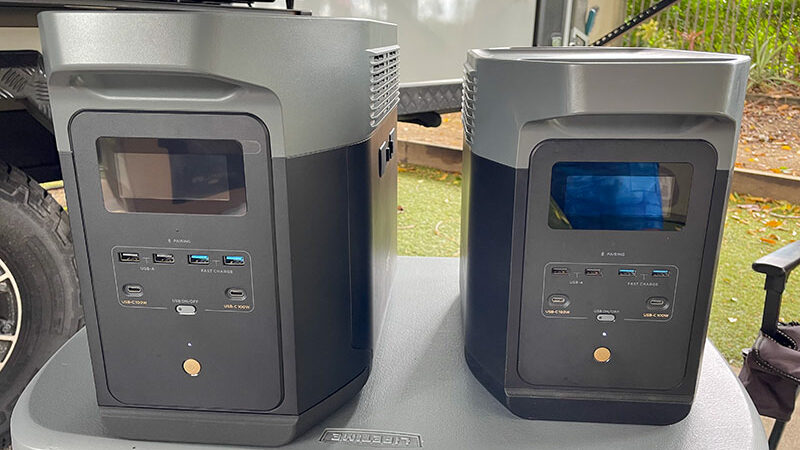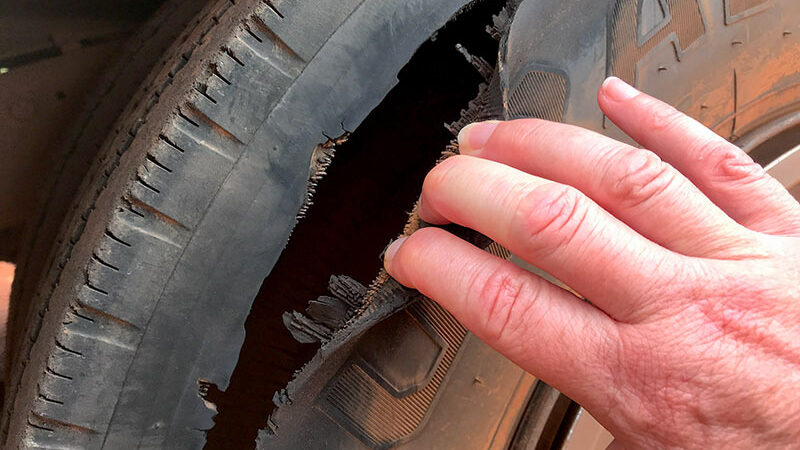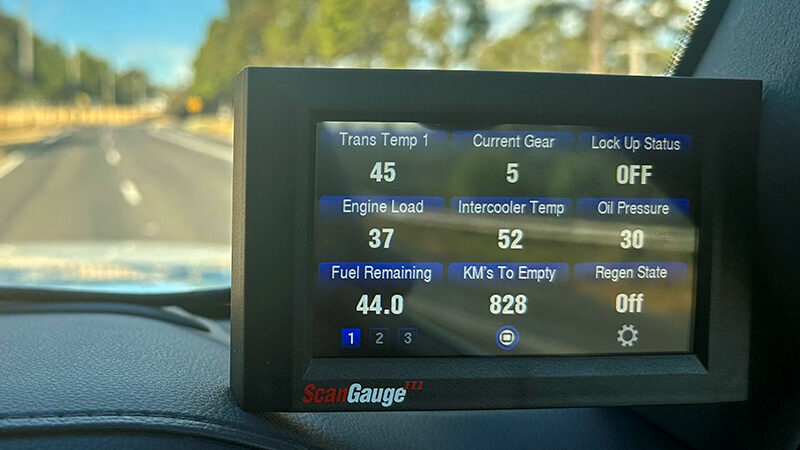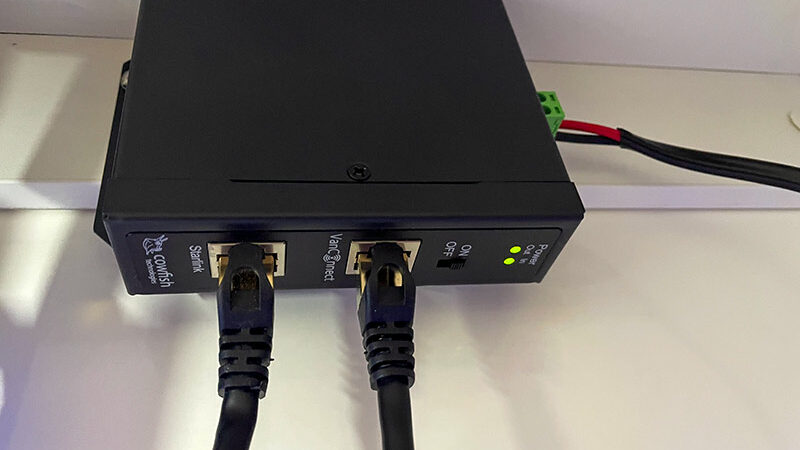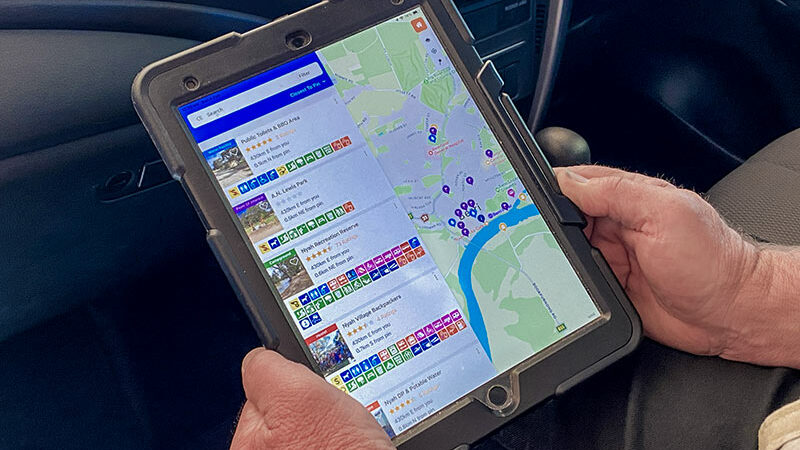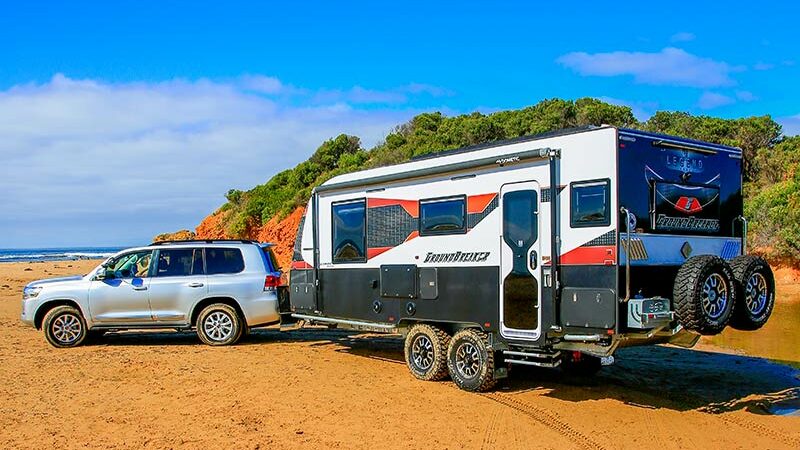5 Things You’ll Notice When Towing
If you’re an experienced caravanner, hitching up probably doesn’t worry you. But if you’re new to the lifestyle – perhaps you’re about to buy your first van – you’d be forgiven for feeling a little nervous about your maiden voyage.
While not rocket science, towing a van isn’t like driving unhitched. It will introduce you to a new range of pressure points and the potential for anxiety is very real. So let’s be honest about what to expect the first time you hitch up and head off…
THE WEIGHT OF IT
First, you’ll notice the weight on the back of your tow vehicle. Your vehicle’s engine will work harder on take-off and, to a lesser extent, at cruising speed. At all times, it’ll feel like your pulling a house on wheels which, after all, is exactly what you’re doing.
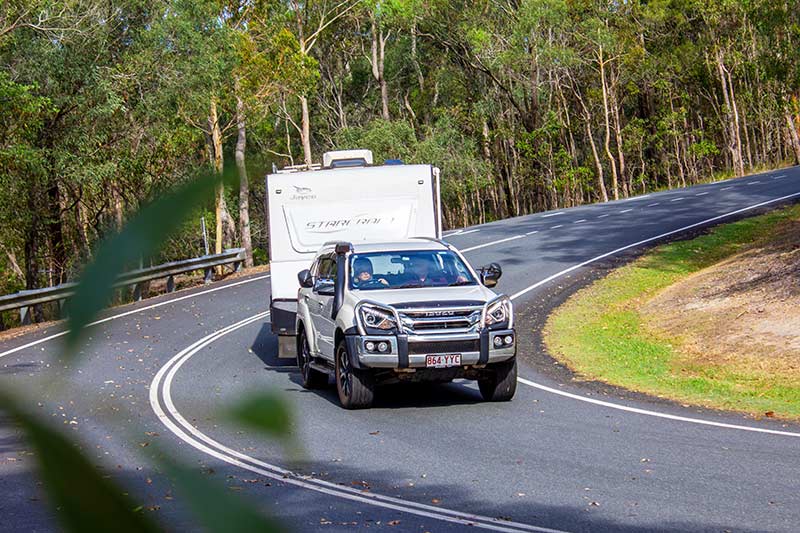 As such, your senses and general awareness will be heightened. You’ll be constantly aware of how the van is tracking, always thinking about its placement on the road. At least, you should be. If this sounds stressful, don’t worry – in time, your nerves will settle and you’ll learn to monitor the van while simultaneously monitoring the road ahead.
As such, your senses and general awareness will be heightened. You’ll be constantly aware of how the van is tracking, always thinking about its placement on the road. At least, you should be. If this sounds stressful, don’t worry – in time, your nerves will settle and you’ll learn to monitor the van while simultaneously monitoring the road ahead.
CUTTING IN WHEN TOWING
The first time you negotiate a turn, you’ll notice that your caravan takes a shorter path. It will ‘cut in’ on the corner, and if you’re not careful, the van could mount the kerb, take out a street sign, or worse.
It’s important to compensate for this by taking corners in a wider fashion. How wide will depend on the length of your towing combination, the position of the axle set on the van, etc., so your best judgement and common sense are required. Have you ever seen a sign warning against towing a caravan along a particular road? It’s quite possible that the road being referred to is too narrow, with sharp corners that will make you come unstuck.
In short, a lack of adequate turning space coupled with an inexperienced driver is a recipe for disaster. Left turns are particularly problematic, since we drive on the left and the towing combo is already much closer to the side and corner before the turn. If in doubt, don’t risk it. Continue forward and rethink your route.
It’s also worth noting that the rearmost outer edge of the van will sweep more widely around corners than you might realise. As you negotiate a corner, and you’re thinking of the van’s ‘cut-in’ angle, you’ll also need to consider your van’s outside tail sweep, particularly if it is quite a long van.
BRAKING
Your tow vehicle’s braking system was designed to stop the vehicle, not the vehicle and a 3000kg caravan. The inertia of your heavy, rolling caravan can be mitigated by the tow vehicle’s brakes, but it’ll take much longer to pull up and you’ll quickly chew through the brake pads if you do so for an extended period. In any case, relying on the stopping power of the tow vehicle alone is unsafe and illegal, unless the actual weight being towed is 750kg or less.
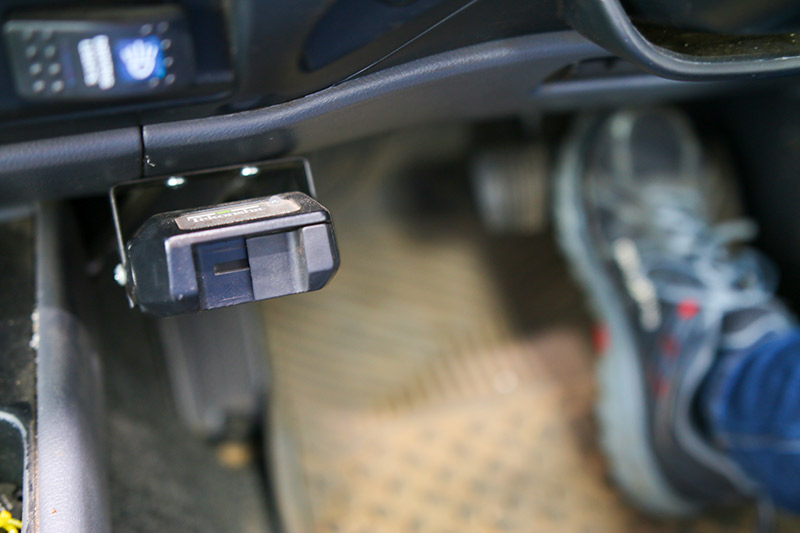
That’s why your caravan will have an independent braking system, whether electric, inertia or air-actuated. As you apply your tow vehicle’s brakes, it will send a signal to your van’s brakes to do their job, thereby allowing both vehicle and van to brake together. (Inertia or hydraulic brakes rely on the inertia of the van to activate.)
As a new caravanner, you might notice the van’s brakes ‘grabbing’ as you brake for a red light or slowing traffic. That means you’ve set the brake controller too high. The trick is to find the ‘sweet spot’, where the van and vehicle feel like they are braking together as one unit.
REVERSING
Don’t get me started on reversing. Backing up a caravan is a different ballgame altogether. Think you’re pretty good at reversing your car? Well, I can assure you, successfully reversing a car with a caravan on the back takes experience. Do not expect to be able to reverse your caravan accurately, or even safely, on your maiden caravan voyage.
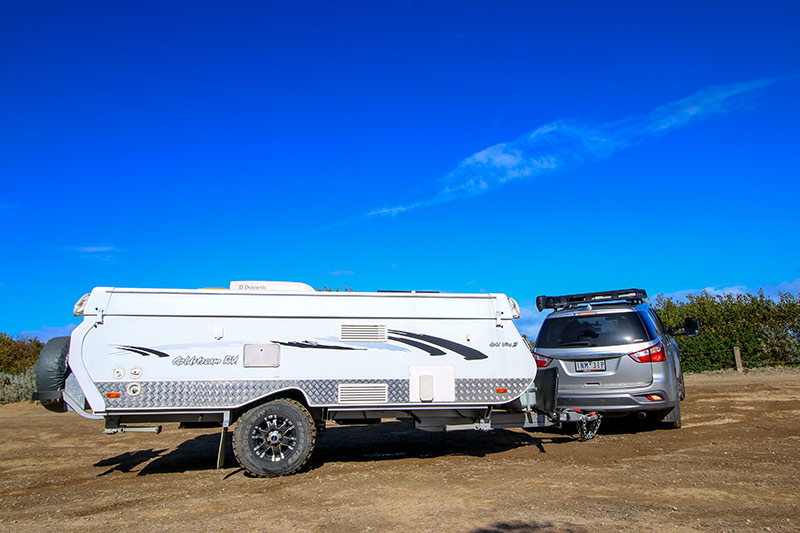 We have published articles about how to back-up a van, and we’ll link to one here. Our best advice: don’t leave it to your first caravan trip to gain an understanding of what reversing a caravan entails. Find a quiet carpark or an open area, and practise. At best, you’ll grasp the fundamentals quickly and start putting them into practice. At worst, the experience will show you how easy it is to muck it up when you don’t know what you’re doing, allowing you to travel accordingly, perhaps by asking the caravan park manager to help when it’s time to reverse onto your site, and by avoiding certain situations that might require you to reverse until you’ve develop the necessary skills.
We have published articles about how to back-up a van, and we’ll link to one here. Our best advice: don’t leave it to your first caravan trip to gain an understanding of what reversing a caravan entails. Find a quiet carpark or an open area, and practise. At best, you’ll grasp the fundamentals quickly and start putting them into practice. At worst, the experience will show you how easy it is to muck it up when you don’t know what you’re doing, allowing you to travel accordingly, perhaps by asking the caravan park manager to help when it’s time to reverse onto your site, and by avoiding certain situations that might require you to reverse until you’ve develop the necessary skills.
PARKING
The first time you hit the road, it will become immediately obvious that some places, especially tight car parks, are best avoided. Unless you are truly experienced, and/or are certain that there will be enough room to turn around, you’re much better off parking on a side street or in another open area that allows parking.
Always adhere to this golden rule: never turn down a dubious secondary road unless you’re certain it lead somewhere you can turn around, if necessary. The same goes for car parks. This is especially important if your reversing skills aren’t yet up to scratch.
SUMMING UP
If this all sounds rather difficult and disconcerting, don’t be discouraged. It’s true that towing involves a learning curve, but much of what I have mentioned here comes down to exercising sound judgement and common sense. So proceed cautiously, always remain aware of your environment and the traffic conditions, and don’t do anything stupid. Easy, right?
Again, I highly recommend a few trial runs, towing in quiet areas that will allow you to appreciate the challenges of turning your van around, reversing it, observing how much it cuts in around corners – that sort of thing.
What was it like the first time you towed a caravan? Share your towing experiences with other readers by emailing [email protected]
MY FIRST CARAVAN TOWING EXPERIENCE
Marty Ledwich is a very experienced caravanner. But even he had to start somewhere. And it wasn’t all beer and skittles…
When I first started to explore this country, I did it towing camper trailers. I had towed them all over Australia, including remote areas and long outback tracks. I thought I had a fair amount of towing experience. When I finally bought my first caravan, I quickly realised all that experience meant diddly squat!
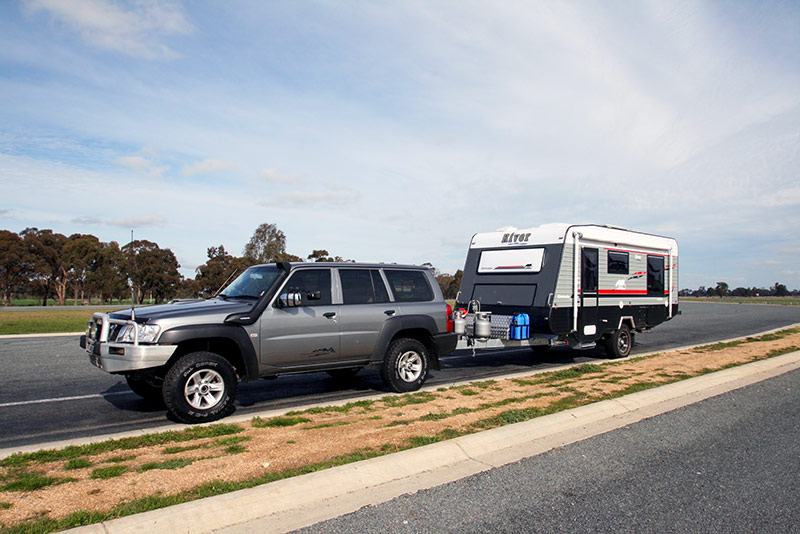
We were bringing home our new caravan, an 18ft single-axle offroader, from Springvale, Vic, all the way to Craigieburn during Melbourne’s notorious peak hour traffic.
I wont lie to you. It was a pretty scary experience. I’d never used extension mirrors before and they took a while to get used to. With the van being wider than the car, it felt like we had a jumbo jet behind us. I thought every car and truck in the lanes next to us was going to hit it.
But the thing I was completely unprepared for was just how desperately every other driver seemed to want to get ahead of us, and they would take every risk to do so. It scared the daylights out of me.
Obviously today, after 10 years of towing caravans, I’m completely used to it and know to anticipate what other drivers do, but I wish I was more prepared for it that day we towed our first caravan home.
The post 5 Things You’ll Notice When Towing appeared first on GoRV.
Source: https://www.gorv.com.au/5-things-youll-notice-when-towing/


